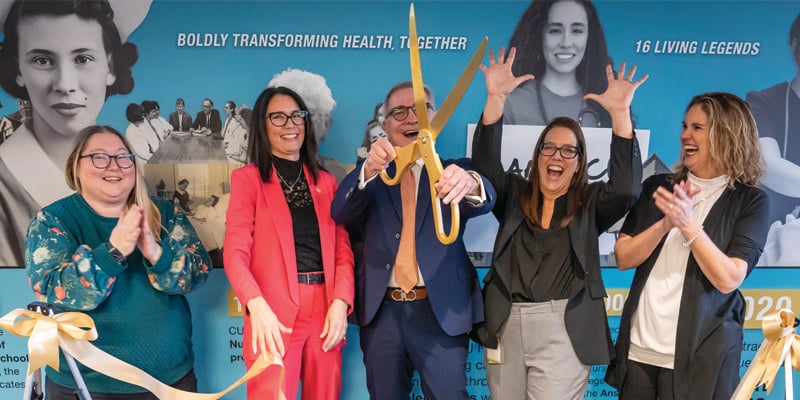Nurses can take several career paths after earning a Doctor of Philosophy (PhD) degree.

CU Nursing alum C. Robert Bennett, PhD, PPCNP-BC, CPNP-AC, CCRN |
A scientist, researcher, scholar, and educator are just some of the options. How do PhD students apply for jobs? What should they look for?
C. Robert Bennett, PhD, PPCNP-BC, CPNP-AC, CCRN, answered some of those questions for students at the University of Colorado College of Nursing at Anschutz Medical Campus during the program’s summer PhD Intensives Week. Bennett is a CU Nursing alum, having earned his PhD in Nursing (Caring Science track) in 2021. He also earned an Interdisciplinary Graduate Certificate in Palliative Care (Biomedical track) and completed a post-doctoral fellowship in palliative care and aging research at the University of Colorado School of Medicine Division of General Internal Medicine.
He now works as a senior associate consultant, assistant professor, and nurse scientist at the Mayo Clinic Division of Nursing Research in Phoenix, Arizona.
“One of my former colleagues said a job is a match to be made, not a prize to be won,” he says. “It originally relates to choosing a college, but the sentiment is the same when it comes to finding a job.”



